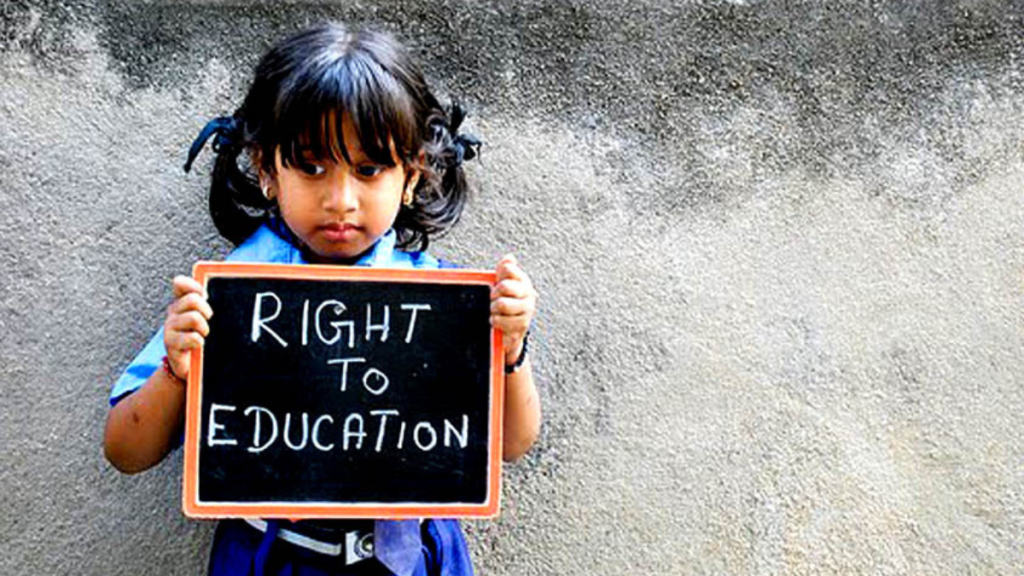RTE Act violation complaints are rising across Delhi NCR as several private schools have reportedly begun detaining students in Classes 6 and 7. This action directly contravenes the Right to Education Act of 2009, which strictly limits detention to Classes 5 and 8 under specific, legally defined conditions.
According to revised guidelines issued by the Department of School Education and Literacy under the Ministry of Education in December 2024, students can only be detained in Class 5 or Class 8, and only after being offered an additional chance to take a re-examination within two months of the results being declared. Despite this, many schools are allegedly giving parents two choices—withdraw the child through a school leaving certificate or allow them to repeat the academic year in Class 6 or 7.
One parent from Gurgaon, speaking on condition of anonymity, shared, “My son is in Class 6 and was unwell for most of the year. Because of that, his performance suffered. The school is now saying that if he does not clear the re-exam in May, he will not be promoted. But the rules clearly state that only Classes 5 and 8 are eligible for detention.”
Education activist and senior advocate Ashok Aggarwal confirmed that such practices lack legal support. He explained that before the 2019 amendment, a no detention policy was in place until Class 8. Post-amendment, limited detention was introduced for Classes 5 and 8 only, and even then, it required schools to offer re-examinations before retaining students. “Private schools are defying the Act and creating their own norms,” he stated.

Professor Anita Rampal, a respected educationist formerly with Delhi University, criticized schools for openly violating the Act. “Detaining students in Classes 6 and 7 undermines the legal framework of the RTE Act. It is a serious issue. Parents should not hesitate to challenge this in their local district courts. These are constitutional rights being disregarded,” she said.
Former CBSE chairman Ashok Ganguly added another layer of concern. He pointed out that even the detention of students in Classes 5 and 8 could be questioned, as state education boards have yet to formalize the procedures. “While the law allows it under special conditions, the necessary guidelines have not been issued by most states. As a result, even that provision stands on uncertain legal ground,” Ganguly stated.
Section 16A of the RTE Act clearly mandates annual examinations in Classes 5 and 8. Students who do not meet promotion standards must be given a second chance through a re-exam before any decision to detain is made. The Act also firmly states that no child should be expelled from school before completing elementary education.
A policy note published by the Department of School Education and Literacy highlights the psychological risks associated with forcing children to repeat a class. It explains that repetition often has a damaging effect on the student’s confidence, as it offers no new strategies to help them overcome previous academic difficulties. “Such decisions can reinforce feelings of failure and lead to long-term emotional distress,” the document notes.
The policy also clarifies that the intention behind the no detention clause was never to eliminate academic assessments. Instead, it advocated for continuous and comprehensive evaluation that allows teachers to track learning in a supportive, non-threatening environment and to intervene early where needed.
Following the 2019 amendment to the RTE Act, at least 18 states and union territories—including Delhi, Tamil Nadu, Bihar, Gujarat, and West Bengal—formally abolished the no detention policy for Classes 5 and 8. Yet many states are still struggling with late notifications and inconsistent implementation. Officials from the Ministry of Education suggested that the rollout of the New Education Policy shortly after the amendment may have slowed procedural updates.
As frustration among parents continues to grow, educationists and legal experts are calling for stricter enforcement of the RTE Act and tighter regulation of private educational institutions. Meanwhile, affected families are turning to the courts to defend their children’s right to equitable and uninterrupted education.
ALSO READ
CBSE’s Visionary Step: 50-Hour Annual Training Now a Must for Teachers
Act Fast! Your Gateway to Growth – DU’s Esteemed Summer Internship 2025 Ends Soon!
Blame game emerges in JNU after student union polls postponed over violence